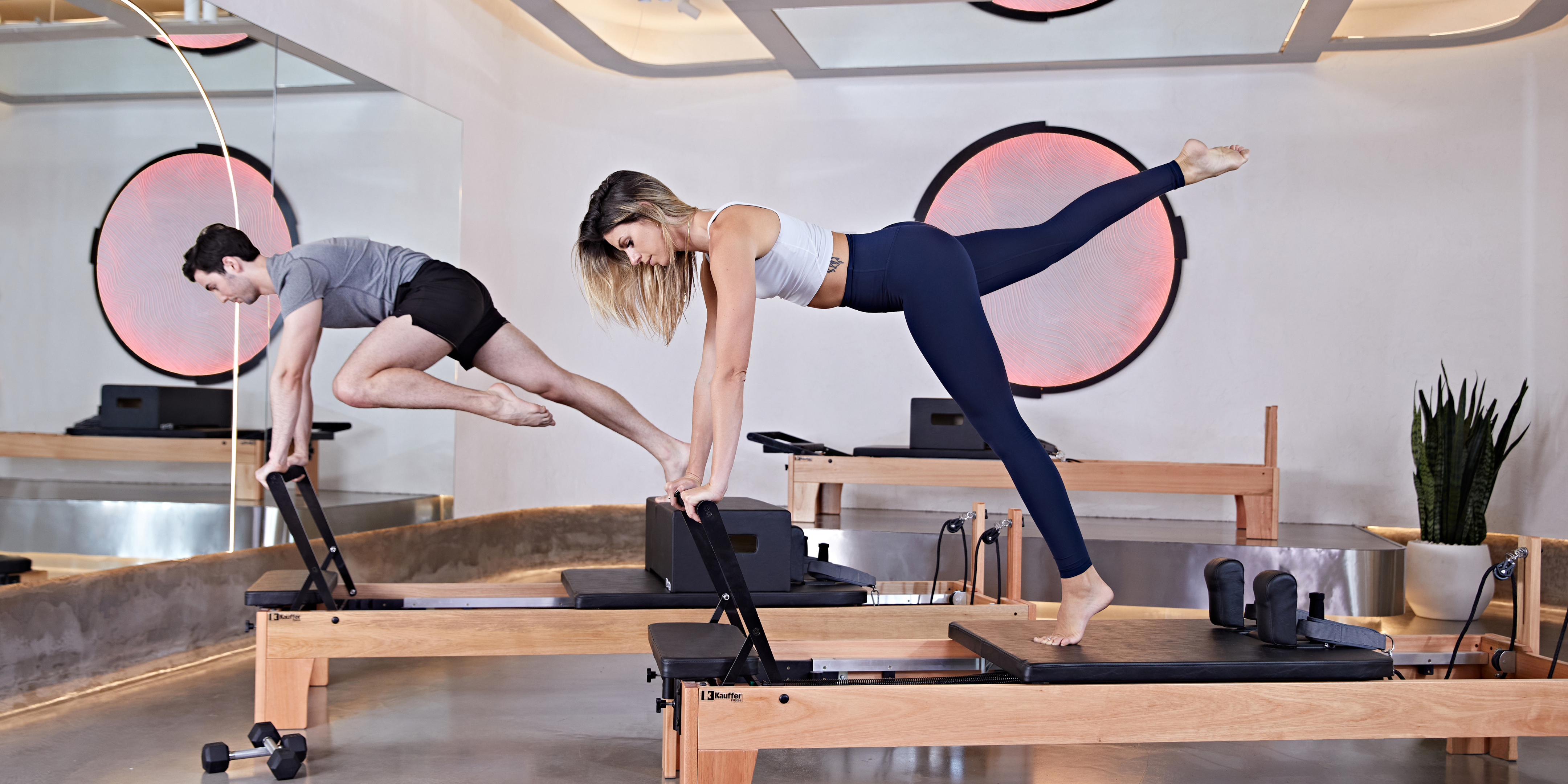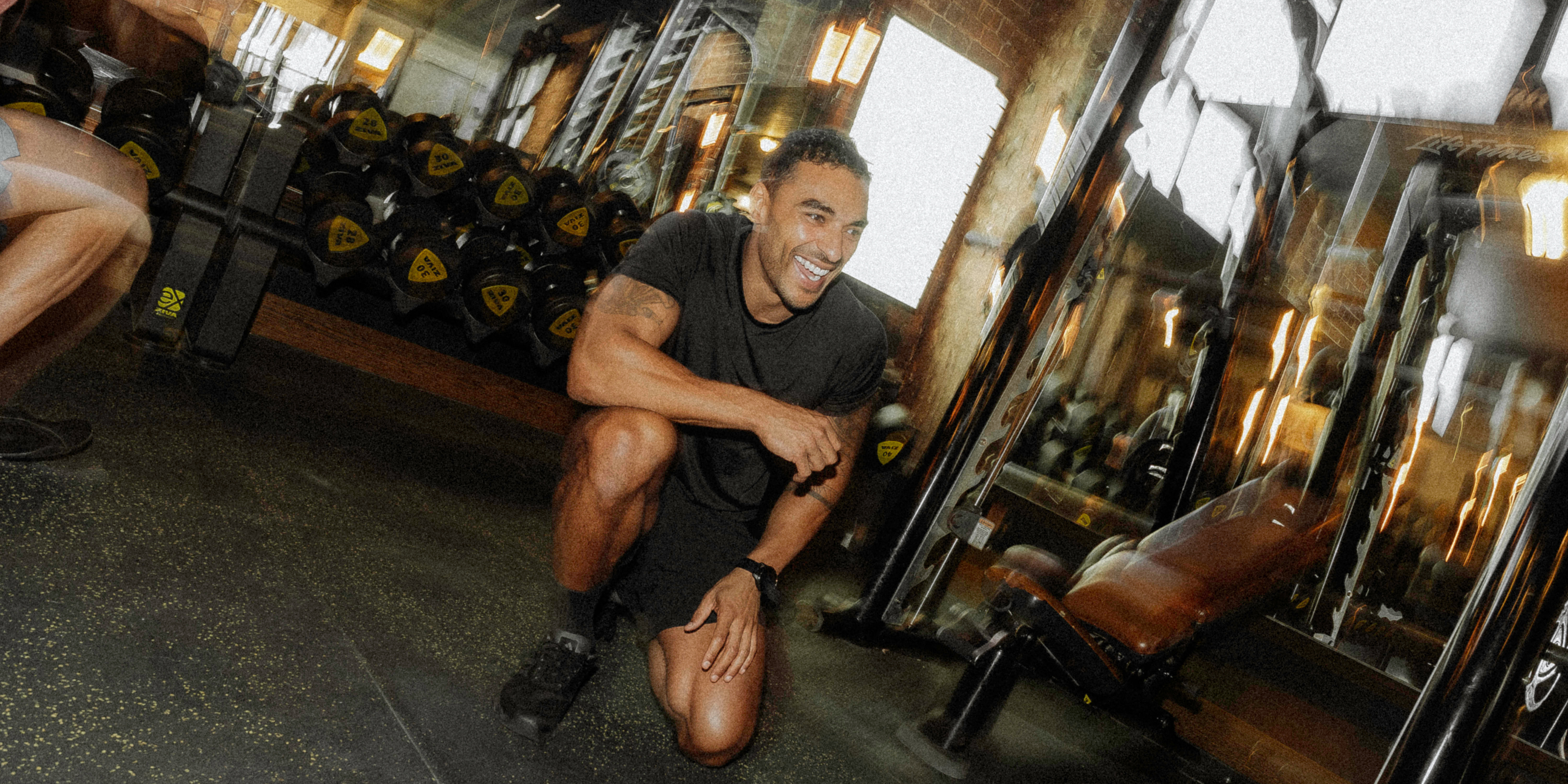We’ve officially entered the period of the “New Year, new me” mantras. Motivation is at its peak, summer bodies and maintaining a healthy work-life balance is the goal. But if behaviour change was easy, these New Year’s resolutions wouldn’t be so challenging.
Let’s be honest, sustaining behaviour change is difficult. Especially if you’re solely relying on that “summer body” vision. As a behavioural scientist and personal trainer, I can confidently say that the reason we fail is not that we’re weak-willed. It’s because good health starts from the inside.
Studies show that more often than not, we set ourselves up for failure. We commit to a habit we’d like to build without planning how we’ll overcome the psychological barriers that we’ll face in the process. That can be anything from snoozing that morning alarm or succumbing to the warmth of your blanket on a rainy day. When things get challenging you need to have a plan to make sure you stay on track.
The mental game is everything. If you want your “healthy habit” journey to lasts longer than a 3-day detox or 30-day fitness challenge, follow my top 3 tips for long-term behaviour change.
Tip 1. Match your goals with your values
We naturally hold our values in the highest regard. We prioritise anything that directly aligns with what we believe in. Goals on the other hand, are associated with a desired outcome and therefore are much less resilient to change. In short, work with our values, not against them. Long-term behaviour change is much easier when they align with what you deem most important.
For example, if your values are aligned with connections, friendships, and quality time then perhaps a group class or training with a friend will suit you best. Try doing a coastal work with your bestie instead of a brunch or bringing your partner to a group fitness class.
If your habit change involves nutrition you’ll still want to consider how cultural norms and family values may be a hurdle. For many of us, food is a way of connecting and expressing our love and appreciation for people. If your family dinner are typically lacking important nutrients, this may provide some barriers to your behavioural change.
To overcome these hurdles, it might be best to work around your Yiayia’s Greek feasts on Sunday afternoons. This will inspire you to make healthier choices on the other days of the week while still allowing you to enjoy quality family time.
But let’s take a step back. Do you know what your values are? If you don’t, there are tests you can take to identify what’s most important to you. You can take this Personal Values Assessment to understand what you prioritise and align you habit goals to. The test provides an overview of the main core values, such as love, respect, friendship, fitness, courage, family time, education.
Tip 2. Write up a contingency plan
There’s no avoiding it, you will experience slip-ups and inconsistent motivation. The good thing is, if you are expecting it, you can use it as a tool to learn more about your triggers instead of seeing them as failures. Reflecting on your hurdles in previous habit change attempt may help you predict future challenges.
It could be that in your last attempt you had a stressful week at work and as a result you missed a few workouts or settled for fast food. By identifying this as a trigger, you can prepare for it. Perhaps you could try meal prepping so you don’t need to cook when you get home. Or training with a friend so you have extra motivation to make that workout. Psychologists refer to this as forming implementation intentions. In simpler terms, we call this the “if-then” situation. The “if” represents the environmental cue (in this case, stress at work) and the “then” is your planned response (in this case, not eating your pantry bare).
The most beneficial ‘then’ responses come down to planning. This could be anything from planning your lunches, pre-packing your gym bag, training on your lunch break, in case you get stuck at work until late. So yes, this is basically preparation for success backed by science!
Tip 3. Tie it back to your identity
Earlier on we spoke about long-term behaviour change made easier when new behaviour aligns with our values. However, there is a second part to this. Psychologists also reference “self-concordance” as a key facilitator of forming new habits. Self-concordance means that our goals feel intrinsically tied to our interests and identity.
We are encouraged to stay on track when our goals align with who we are, our authentic self, and with what we want for the bigger picture of our lives. Why? Because we are working towards something we feel is intrinsic to who we want to be and how we want to live. Sorry, I hate to break this to you but no, a summer six-pack is not self-concordant.
Although self-concordant goals are different for everyone, you still need to consider what the healthiest version of yourself looks like. In an ideal world, how do you feel day to day? Are you pain-free? Are you strong, energetic, calm, or even just more relaxed? Once you’ve done that, consider what small things you can do differently, to align with this vision everyday.
All of a sudden, you’ll find that you’re not choosing to go to the gym because you want to fit into those pair of jeans from 2010. Instead, you’re training because it aligns to your vision to be the best version of you! And as a bonus, this change of mindset and congruence between your behaviour and what you value also boosts a sense of wellbeing. I know, it just keeps getting better!
In short, if you let go of this unrealistic journey to perfectionism and you embrace the “if-then” plans then you have a much better chance of reaching you goal. Hopefully, this goal aligns with your pursuit of your healthiest and happiest identity.
Change is all change mental. Creating and sustaining healthy habits is only achievable if you’ve got your head in the game and with these tips, I think you’re ready to play!
 by pippa wood
by pippa wood




